Slices of Turkey and Challah
Why I’m giving thanks for Thanksgivukkah
My mom’s turkey-shaped challah, created to celebrate the coming fusion of Thanksgiving and Hanukkah, Thanksgivukkah.
When I first heard of “Thanksgivukkah,” as people have dubbed this year’s Thanksgiving that doubles as the first day of Hanukkah, I thought it was a farce. A cleverly named farce, but a joke all the same.
I soon found out, though, that Thanksgivukkah was very much a reality. At first, this disappointed me. Without a refuge to be taken in my latkes, dreidels and eight nights (take that!) of presents, the radio stations blaring Christmas music and the ubiquitous Santa Clauses ho-ho-hoing around town can be hard to withstand. No one likes to linger on the outskirts of a party, unable to enter and celebrate with everyone else.
How I’ll bear the week of Dec. 25 remains a concern; already some stores I frequent have begun blinding me with red and green. However, it’s become a more minor concern, pushed to the back of my mind by the many wonderful parts of Thanksgivukkah.
For one thing, the expanded food options make my mouth water. I come from a Foodie Family — my mom grew up in a Jewish deli, and my dad nearly opened an ice cream shop in his college days. If you know us, you know we take food very, very seriously. As such, the myriad new dishes I’ve heard about for Thanksgivukkah excite me to no end. Pecan pie rugelach? Cranberry applesauce? Turkey with a challah-based stuffing?
Yum.
More importantly, as far as food is concerned, my mom made one of the great innovations of the modern era: a turkey-shaped challah. The good news is there are two of them, and they’re each gigantic. The bad news is I have to wait until Nov. 28 to gobble them up. Sigh. Even weak puns can’t comfort me.
What can comfort me, though, is a merit of Thanksgivukkah that applies solely to my family. Ten years ago, my uncle died on Thanksgiving. Since then, the holiday hasn’t been happy for us. Even as we attend friends’ dinners and stuff ourselves fuller than the turkey, and laugh about Macy’s Parade floats and balloons, a shadow hangs over us. It’s hard to give thanks on a day a loved one left you, without warning and far too soon.
But Hanukkah is happy. On Hanukkah, we eat latkes and donuts and spin the dreidel. We complain blithely about the pile of snow outside obscuring our lit-up menorah, perched on a table in front of our den window, from public view. We exchange gifts for eight nights in a row, tokens of our love and appreciation for one another.
The combination of Thanksgiving and Hanukkah this year could have poisoned Hanukkah, rendering it as colorless and meaningless as our Turkey Day. Instead, it’s done the opposite. Rather than dwelling in memories of my uncle during the week approaching Thanksgiving, my family has been anticipating the festivities that come with the Festival of Lights. And that’s such a welcome change.
Hanukkah’s timing has proved sneakily virtuous in more ways, too. For one, every year, my dad and I have begged my mom to let us decorate our house with blue and white lights to celebrate Hanukkah. My dad and I argue that because Hanukkah is the Festival of Lights, adorning our home with light is appropriate; my mom counters that because stringing up lights is a Christian tradition, we could be mistaken for Christians.
With Hanukkah coming so early, however, my mom’s worry carries less legitimacy. Even the most ardent Christmas celebrants usually don’t have lights up a full month before the holiday. As a result, my mom finally gave her permission for our house to light up our street this year.
(One could say we got overexcited when finally buying lights. Currently, a string of blue lights; a string of white lights; a battery-operated “Happy Hanukkah” light set; a large, hanging, light-up Star of David; and a string of bright, tiny Stars of David lie on our living room table, waiting for weather good enough for us to go outside for extended periods of time.)
What’s more, as Thanksgivukkah has become an omnipresent term in America over the past few weeks, I’ve observed a fascinating phenomenon: Hanukkah is actually in mainstream news. As news sources from The New York Times to BuzzFeed.com offer their takes on the rare event — which will next occur in the year 79,811, according to quantum physicist Jonathan Mizrahi, who calculated the number for The Jerusalem Post — they also contribute definitions of “latkes” (potato pancakes) and “menorahs” (candelabras that hold nine candles) to the public, not to mention correct spellings of the word “Hanukkah.” (Chanukah, Hanukkah, Hanuka… there are so many ways to spell it, it shouldn’t be misspelled as often as it is.)
I’m no Super Jew; I identify with my faith, sure, but I don’t keep Kosher to any degree. However, it’s a welcome change to see my holiday recognized nationwide, and in more than just the scattered “Happy Hanukkah!” here and there. In a largely Christian nation like our own, I don’t expect Hanukkah to earn as much publicity as Christmas, but knowing that more people have heard of my holiday still makes me smile.
When an event happens once every 70,000 years, not appreciating all it has to offer would be a true shame. Upon further reflection, Christmas may not be as hard to bear this year as I think. I won’t be celebrating Hanukkah then, but I’ll have memories of a particularly cheerful November holiday to fill that hole.
With the combined feasts of Thanksgiving and Hanukkah, I may or may not still have leftovers, too.

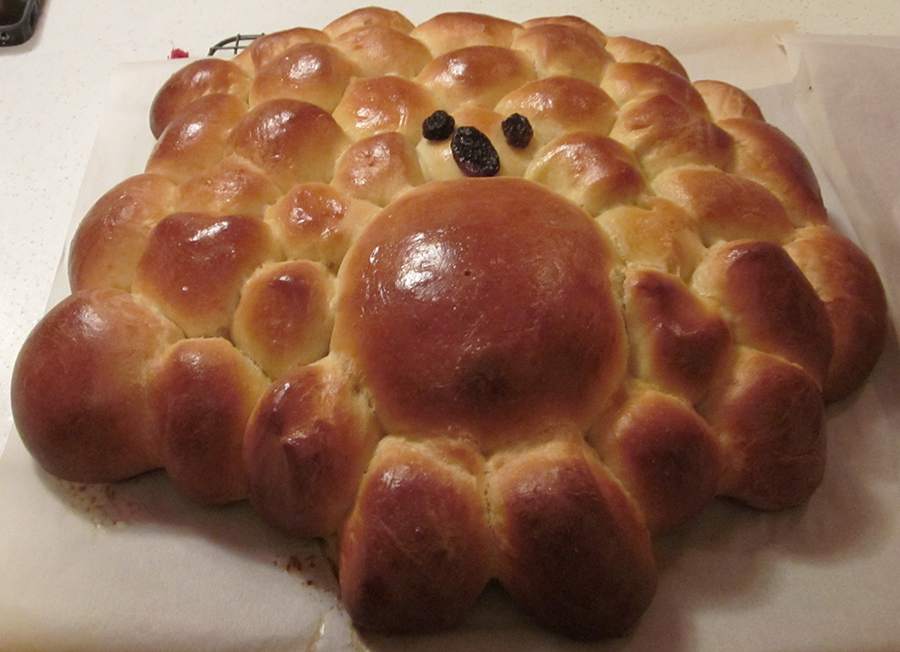
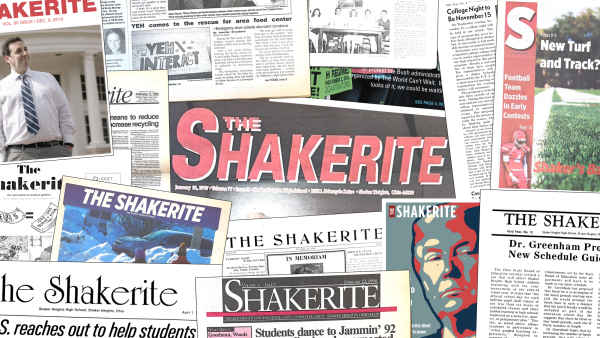
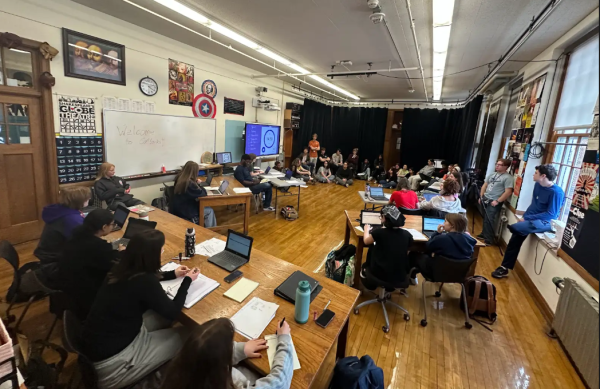
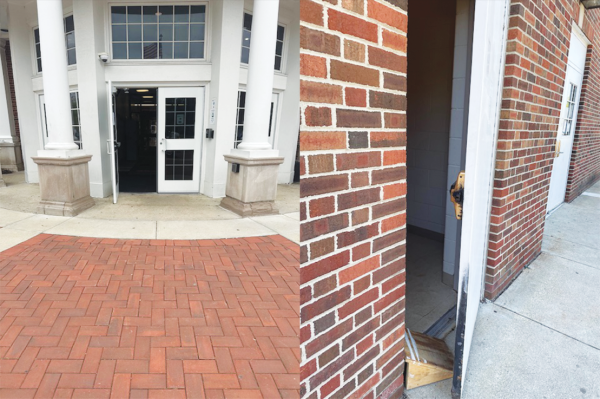
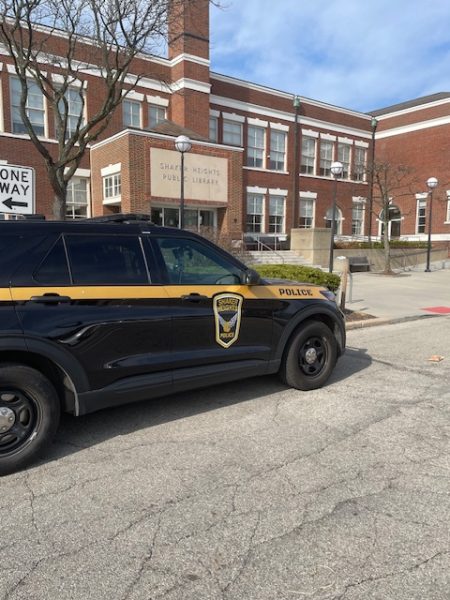
Leo Izen | Nov 25, 2013 at 5:42 pm
I’ve always thought there’s no incorrect spelling of Hanukkah, as long as it reads accurately phonetically. The word “Hanukkah” is transcribed from the Hebrew “חנוכה” which is not written in Latin letters. This should mean that any spelling is correct as long as the pronunciation is the same as in Hebrew.